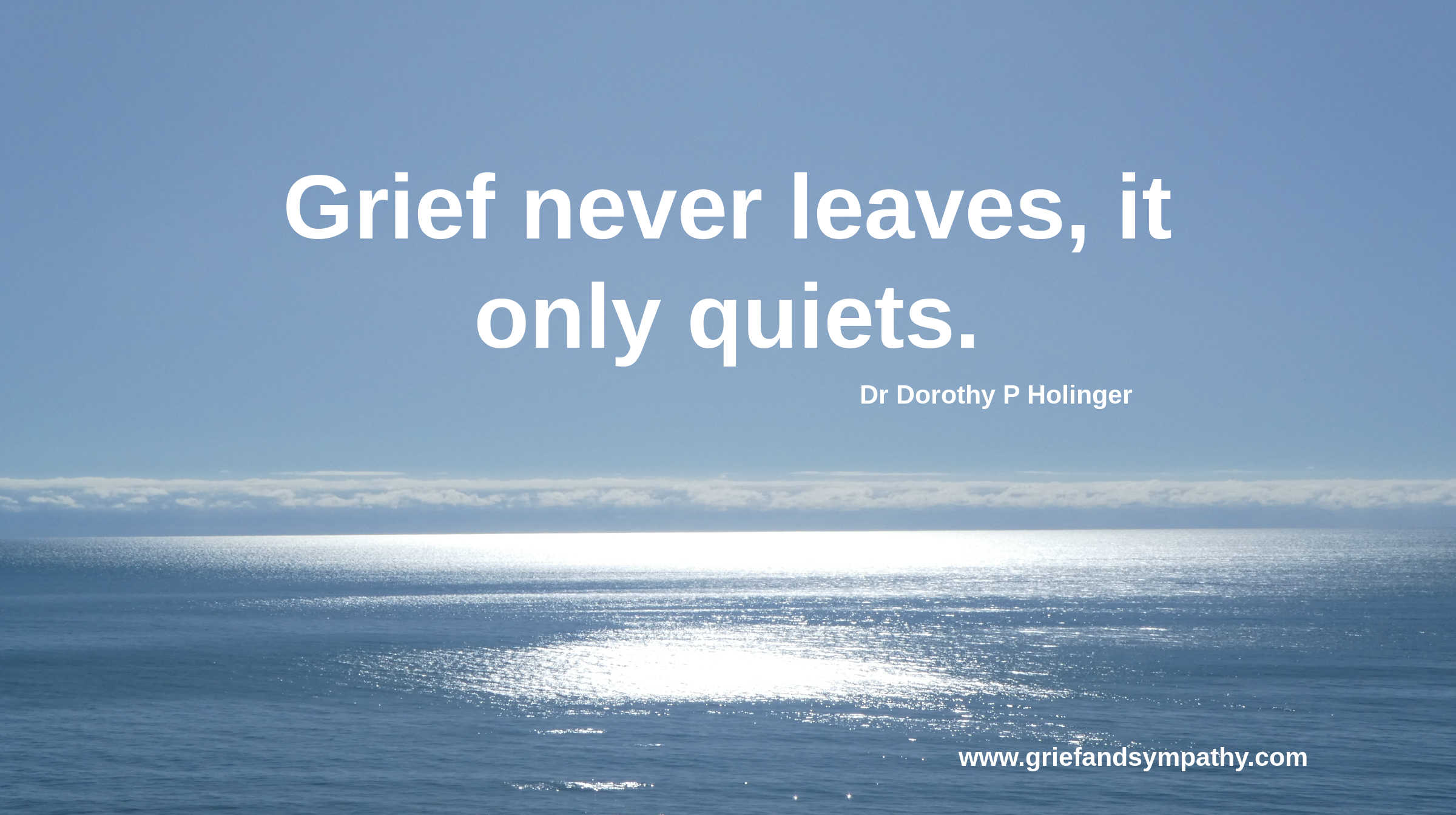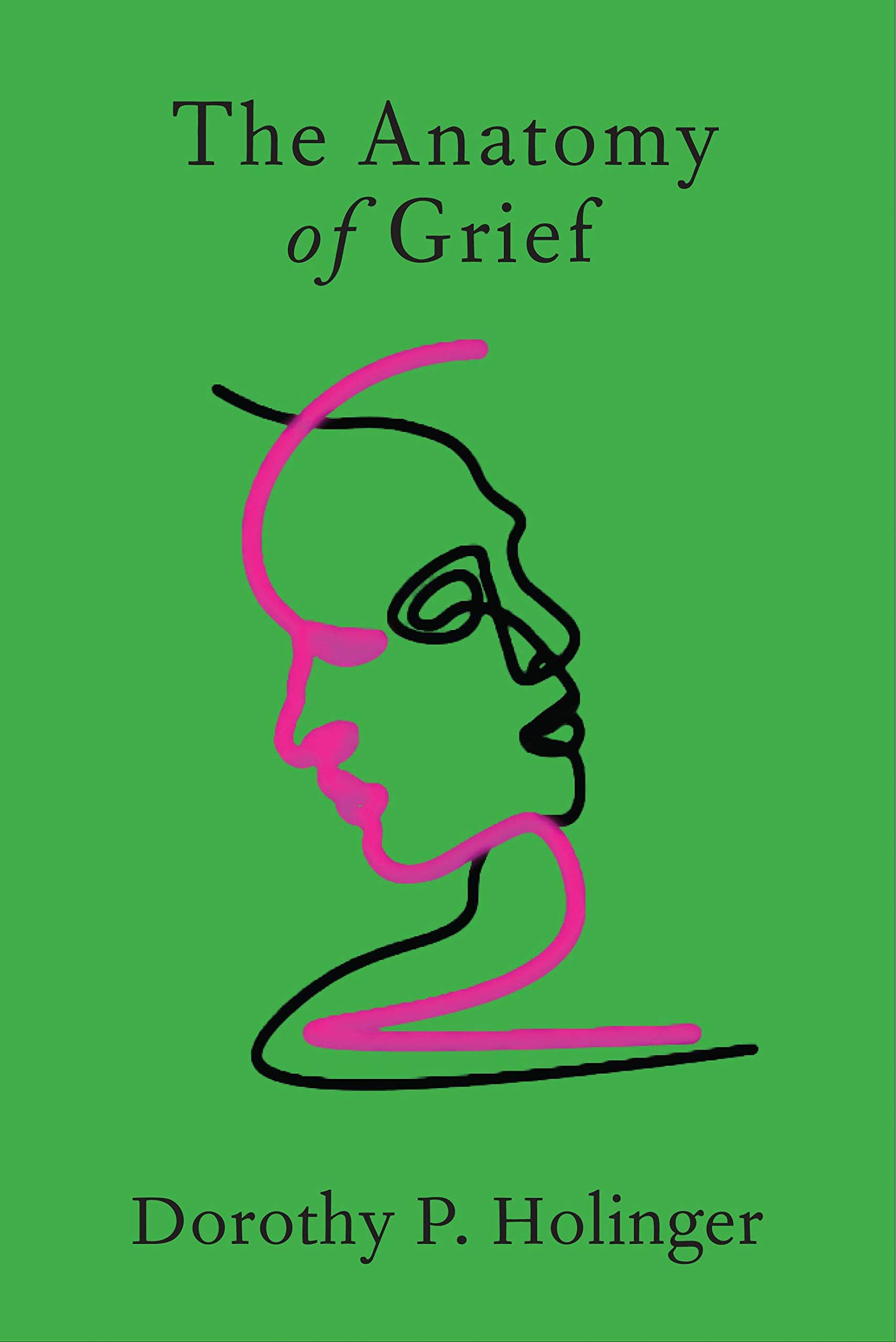How to Cope with Grief when the Body Hurts
By Dorothy P. Holinger, PhD
Our bodies certainly let us know when we have lost a loved one. Our guest writer, psychologist Dr Dorothy P. Holinger, explains how to cope with grief when our body is letting us down and bombarding us with scary physical symptoms. She explains broken heart syndrome and other symptoms we may experience.
Dorothy P. Holinger, Ph.D. was an Instructor in Psychiatry at Harvard Medical School. She is a member of the American Psychological Association, and Sigma Xi (The Scientific Research Society) and is a fellow in the Association for Psychological Science. SHe is the author of 'The Anatomy of Grief'
Hearing the News of a Death
When one hears the news that a loved one has died, physical changes to the body happen immediately:
- the heart beats faster,
- blood pressure goes up,
- the mouth is dry,
- the face pales,
- palms can become sweaty and
- there can be a feeling of queasiness or fainting.
These cascades of sensory information that bombard the brain high-jack its ability to think rationally: "top-down processing” reverts to “bottom-up processing”—the brain’s reception of the body’s sensory alarm signals.
For the survivor, the time of acute grief has begun. (This phase is also often refered to as going into shock. You can read more about shock here.)
What Causes Broken Heart Syndrome?
What can happen during acute grief if the reality of a loved one’s death is overwhelming enough to continue the surge of physical symptoms? The newly bereaved can physically experience a “broken heart,” a rare medical condition that is also called Takotsubo Cardiomyopathy.
Broken heart syndrome was reported in Japan in 2009 and labeled Takotsubo because of the change in the shape of the heart: the left ventricle balloons out and results in the heart resembling a takotsubo, a Japanese octopus-catching pot that has a wide bottom and narrow neck.
This unusual medical condition looks like a heart attack when patients present in hospital emergency rooms with classic symptoms, e.g., shortness of breath and chest pains.
In most cases of broken heart syndrome, there are no lasting effects and the condition is usually resolved within weeks.
When Grief Isn’t Fully Expressed . . .
There can be other changes in the body when grief isn’t fully expressed with tears, with palpable sadness, or with words spoken or written.
When grief is thwarted, it will find a way to express itself, often through the body such as a physical symptom or a facsimile of the lost loved one’s illness or symptomatology. Some people develop symptoms or behaviors of the deceased that keep them connected with the deceased, e.g., a daughter experiencing pain in her shoulder like her deceased mother but something the daughter didn’t feel before her mother died.
The bereaved can have difficulty sleeping, experience changes in appetite, and even taste can be affected.
A friend reported that she lost her sense of taste for months after her mother died. It returned, she said only after my friend made the connection between the loss of taste and the loss of her mother.
The stress of grief can also temporarily weaken the immune system. Getting sick when there’s an anniversary of the death of a loved one or when other significant dates come up.
See also: How Grief Affects Your Health
Ways to Deal with Grief
But there are ways to help us grieve.
One is not to fear this emotion, not to be afraid of the powerful sorrow we feel after a loved one dies.
Grief is a natural reaction in humans and also observed in non-human animals such as elephants after the death of one of their own. Allowing the self to experience sorrow, to allow ourselves to grieve will help the brain, heart, and body heal after loss.
Yet, it’s important to keep in mind that, while the intensity of grief will calm, there will be times when it can erupt—often unexpectedly. We may find ourselves crying again, and think why now, when it’s the effect of a song or the aroma of a perfume or food that results in a surge of grief, the pain we thought we’d dealt with and put away. Grief never leaves; it only quiets.

Another powerful way that will help with the overwhelming feelings of grief is to name what we’re feeling with words. Evidence-based research shows that naming strong emotions changes what happens in the brain: neuronal activity in the amygdala—the feeling and alarm part of the brain—changes to the thinking part of the brain, the right prefrontal cortex, the area of planning and behavioral control. Labeling our painful emotions as we grieve—intense sadness, emptiness or abandonment—not only affects what is happening in the brain, but it also reduces and controls the intensity of what we’re physically feeling. Harnessing our emotions with words affects the body by the voice dropping in pitch and heart rate slowing down.
There are also non-verbal ways of expressing the anguish of grief. Writing about grief can deal with our painful loss by recording thoughts and feelings in a journal, or on random pieces of paper slipped into books or nightstands. The uses of non-verbal voices to communicate loss such as art—drawing, painting or doodling—or even gardening. Expressing the sadness of loss through any of these non-verbal activities will help to assuage its intensity. In Freud’s 1917 theoretical essay, Mourning and Melancholia, he wrote that mourning was the active way to grieve. He called it “grief work.”
Finally, three activities that begin with the letter, E, have been found not only to help with new neuronal generation (Fred Gage, Science, 2021) but may help heal grief are Exercise, Esthetics and Education. Exercise includes activities that keep the body active: jogging, walking, stretching. Esthetics include engaging in enriching and pleasurable activities: going to a museum, a movie, inhaling the air outdoors, noticing the landscape and surroundings. And education includes continual learning: beginning a hobby or project, reading new and different books, taking a class.
We have lots of ideas for all these activities on our self-care pages here.
Eventually circuitry in the brain changes as deeply-felt grief continues to felt, to be talked about, and worked on. Grief-work continues as holidays, places and events are experienced without the loved one. Time pushes life forward for the bereaved without the loved one; the brain makes new connections, the body changes, and the pain of loss quiets. Life without one’s loved one changes into a life of looking back on times when we laughed with them, loved them, chuckled at their idiosyncratic behaviors and so much more.
The loved ones we lost live on in our memories of them.
Dr Holinger’s book, The Anatomy of Grief draws from brain science, psychology and literature to describe what happens to the brain, heart and body of the bereaved. Click here to learn more.
Related Pages:
The Benefits of Grief Journaling
Self-Care Activities to Help Cope with Grief
- Grief and Sympathy Home
- Dealing with Grief
- How to Cope With Grief
Where to get help:
Have You Considered One-on-One Online Grief Counseling?
Get Expert and Effective Help in the Comfort of Your Own Home
The following information about online counseling is sponsored by 'Betterhelp' but all the opinions are our own. To be upfront, we do receive a commission when you sign up with 'Betterhelp', but we have total faith in their expertise and would never recommend something we didn't completely approve.
Do you feel alone and sad with no support and no idea how to move forward? It can be tough when you are stuck in grief to find the motivation to get the most out of your precious life.
Online counseling can help by giving you that support so you don't feel so alone. You can have someone to talk to anytime you like, a kind and understanding person who will help you to find meaning in life again, to treasure the memories of your loved one without being overwhelmed and to enjoy your activities, family and friends again.
- Simply fill out the online questionnaire and you will be assigned the expert grief counselor most suitable for you. It only takes a few minutes and you don't even have to use your name.
- Pay an affordable FLAT FEE FOR UNLIMITED SESSIONS.
- Contact your counselor whenever you like by chat, messaging, video or phone.
- You can change counselor at any time if you wish.
- Click here to find out more and get started immediately.
- Or read more about how online counseling works here.
Sales from our pages result in a small commission to us which helps us to continue our work supporting the grieving.
Hypnosis for Grief - 10 Ways It Can Help You
Try a gentle hypnotherapy track to relax the mind. Learn how self-hypnosis can help you cope with grief at any time of the day or night.

For Remembrance:
Sales from our pages result in a small commission to us which helps us to continue our work supporting the grieving.
Memorial Jewelry to Honour a Loved One
Check out our lovely range of memorial jewelry for any lost loved one. Pendants, necklaces, rings or bracelets, we have them all in all kinds of styles. Choose for yourself or buy as a sympathy gift.
Create an Online Memorial Website
Honour your loved one with their own memorial website. Share photos, videos, memories and more with your family and friends in a permanent online website. Free for basic plan with no ads.









